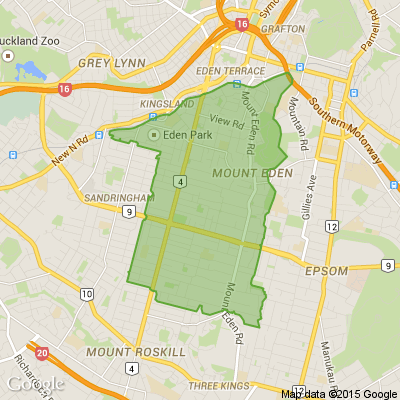Is it too late for New Years resolutions?
Legal New Year’s Resolutions
The best kind of New Year’s resolution is one that is easy enough to keep and makes you feel a whole lot better. We may have made muttered promises to ourselves about more walks, and less wine, but here are five legal resolutions that will leave you feeling right on top of things and ready for your year:
1. Make a will (or take a look at your old one to see if it needs refreshing).
Everybody whether married, single, a parent or a grandparent needs a will. It saves your family having to go to Court to get Letters of Administration. A well thought out will allows you to plan what happens to your assets when you die, and to nominate someone to have a say in important decisions for your children. In addition to your will, do you need an enduring power of attorney so that a trusted person can step in and make important care or property decisions if you cannot do so yourself?
2. Get on top of debt
This year I am abolishing a budget in favour of a “Spending Plan” because it sounds much more fun. If things have gotten more serious than that, a lawyer can help you renegotiate debt, and your bank or mortgage broker could help you consolidate your debts to reduce the overall interest you are paying. A “disruptive accountant” or a budgeting advisor might be just the thing for taking control of your financial affairs.
3. Get some advice on that niggly legal issue
This may seem self-serving, but that combative neighbour on your right of way, that ongoing trust issue, or upcoming property purchase with your partner are underlying causes of stress. Sometimes all you need is 20 minutes legal advice to put you on the path to resolving them.
4. Make sure your insurance is doing what you think it is
For lots of reasons, insurance policies may not be protecting you properly – whether because you have more assets than you used to, other circumstances have changed, or you are just paying too much. So that you are protected when you need it, read your policy and get in touch with your insurer if anything is unclear. Ask them if they have a plain English description of cover and exclusions. Work out whether your house insurance will cover a rebuild if you needed one. Consider an insurance broker.
5. Book in a time for those walks and revel in all that peace of mind (I’m not saying anything about the wine).
Poll: Should all neighbours have to contribute to improvements?
An Auckland court has ruled a woman doesn’t have to contribute towards the cost of fixing a driveway she shares with 10 neighbours.
When thinking about fences, driveways or tree felling, for example, do you think all neighbours should have to pay if the improvements directly benefit them?

-
82.5% Yes
-
14.7% No
-
2.8% Other - I'll share below
The Influence of the Whānau - Day 9
In a small Māori pā (village) nestled beside a flowing river, a young boy named Rangi lived with his whānau. Rangi was curious and adventurous, always exploring the ngahere (forest) and listening to the stories of his kaumātua (elders). The kaumātua would often remind him, “He waka eke noa”—we are all in this together, and our actions affect the collective.
Rangi's best friend, Manu, was a clever boy but sometimes made poor choices. Manu had recently begun spending time with a group of older boys from another pā who were known for their reckless behavior. They would waste kai (food), leave rubbish in the ngahere, and even disturb the sacred awa (river) by throwing stones at eels.
One day, Manu invited Rangi to join the group, saying, “Come on, Rangi! They’re fun, and they won’t hurt anyone. We’re just having a good time!” Unsure, Rangi agreed, feeling pressure to fit in.
The group’s leader, Matiu, proposed a game: they would sneak into the kaumātua's kumara patch at night and take some for a "feast." Rangi hesitated. He remembered the kaumātua saying how much work went into growing the kumara, with karakia (prayers) and care for the soil. But he stayed silent, feeling outnumbered.
That night, the group raided the garden. As they laughed and ate the stolen kumara by the fire, Rangi felt uneasy. He realized that this was not who he wanted to be. When he saw Manu’s joy in impressing Matiu, Rangi felt torn but remained quiet.
The next morning, the kaumātua discovered the missing kumara and the trampled garden. They called the entire pā together, expressing sadness, not anger. “Our ancestors teach us that the whenua (land) provides for all of us, but only if we treat it with respect,” said one elder. “When we harm the whenua, we harm ourselves.”
Rangi’s heart sank. That evening, he confessed to the kaumātua and his whānau, explaining everything. To his surprise, they did not scold him harshly. Instead, they said, “He tangata tītoki, he tangata rākau—a person is like a tree; they grow straight when supported by others. You must choose companions who uphold the values of your whānau and whenua.”
Rangi decided to distance himself from Manu’s new group and instead spent time with those who respected the land and upheld the teachings of their ancestors. Over time, he encouraged Manu to rejoin him, and together they worked to rebuild the kumara patch, learning from the kaumātua.
---
Moral
This story highlights the importance of right company and like-mindedness. It shows that no one is inherently bad, but the influence of others and the situations we choose can lead us astray. Surrounding ourselves with those who uphold values like respect, care, and collective well-being ensures a life of balance and harmony.
Ka mua, ka muri — by learning from the past, we can walk into the future.
Poll: When should the tree go up? 🎄
From what we've heard, some Christmas trees are already being assembled and decorated.
What are your thoughts on the best time to get your Christmas tree up?

-
4.8% Second half of November
-
43.7% 1st December
-
17.6% A week before Christmas
-
32.8% Whenever you wish
-
1.1% Other - I'll share below






 Loading…
Loading…











